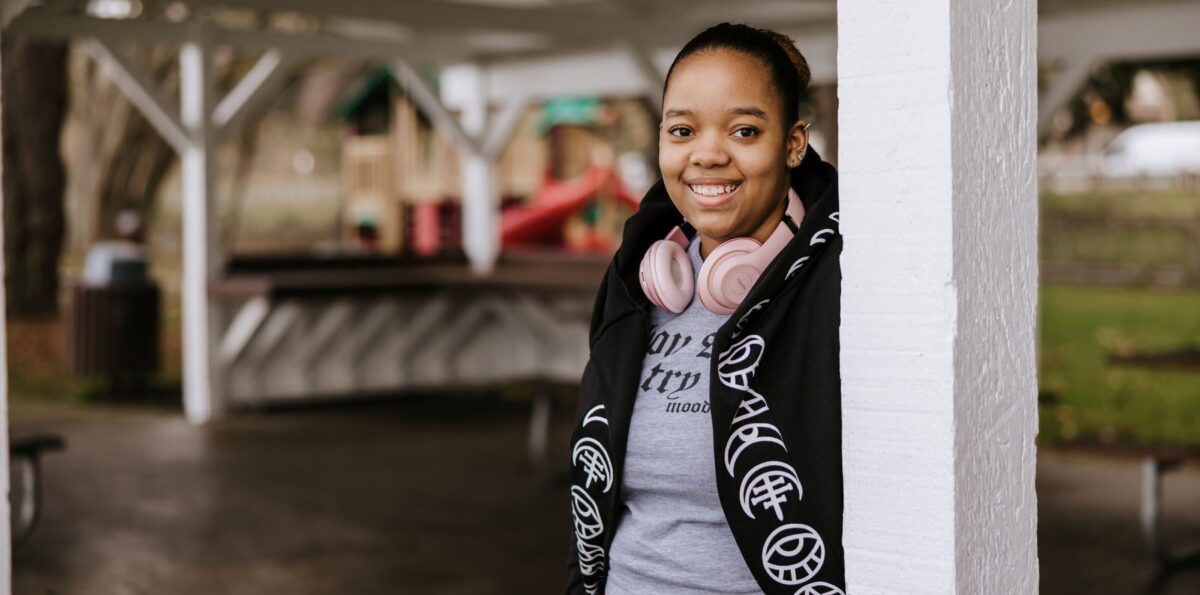Mary Bridge Children’s helps patient find peace despite chronic pain

MJ is a sophomore in high school who likes to sing, enjoys heavy metal, and has big dreams of becoming a hematologist or running their own business. Whatever their goals are, it’s guaranteed they’ll give 100 percent, never letting their sickle cell disease (SCD) diagnosis slow them down.
SCD is an inherited red blood cell disorder that affects millions of people worldwide. According to the Centers for Disease Control and Prevention, those affected show signs around 5 months old. Pain is a common side effect of SCD and can get so intense that MJ is hospitalized to receive fluids and pain medication intravenously.
Other serious complications can include infection, acute chest syndrome and stroke. Mary Bridge Children’s treats more than 70 patients with SCD like MJ every year.
MJ calls SCD an “invisible disease” in that it’s not something that people can see on the surface, but the symptoms are very real.
“Pain is subjective and expressed very individually,” says Trinna Bloomquist, pediatric care nurse manager. She’s been working with MJ for more than 10 years. “We have some things we expect of a person in pain: grimacing, guarding, crying. When a sickle cell patient has had pain often, they no longer express these physical manifestations. When medical people continue to expect those behaviors, they can unintentionally ‘teach’ patients to act out those behaviors and then the patient may be accused of faking. It is a vicious cycle that is a strong point of advocacy for me and our providers.”
MJ’s Mary Bridge Children’s team
MJ doesn’t remember a lot about their first time at Mary Bridge Children’s, but they do recall feeling a sense of safety.
“I just remember them helping me get better,” MJ says. “From then on, it was just an instant bond with this hospital.”
After receiving care at Mary Bridge Children’s for more than a decade, MJ has been to almost every department, from X-ray to gastroenterology to inpatient to therapy services, but their “homebase” is the hematology/oncology clinic at Mary Bridge Children’s Outpatient Center where they receive routine blood tests and treatment.
MJ’s face lights up when talking about their care team which, in addition to Trinna, includes Robert Irwin, MD, Christine Perry, RN and Jessica Pabst, MSW. MJ loves them for their positivity, kindness and overall calm nature, and the feeling is mutual.
“MJ is always very concerned about everyone else in the room even when pain levels are high and would be intolerable to another patient,” Trinna says. “MJ is checking in on others and is thoughtful about how others are doing.”
Philanthropy-powered services
Mary Bridge Children’s programs and services go beyond medicine to care for kids and families like MJ’s. Child life specialists like Bari Bates provide MJ with welcome distractions during long stays in the hospital, massage therapy helps with pain management and vouchers make it easier for family to get a warm meal without leaving her side for too long.
“Parents who work full time have a large financial burden when their children are admitted to the hospital,” Trinna says. “Missing work and having to feed the parent who accompanies their child to the hospital can really add up. We try to help by giving vouchers to offset the costs of eating from our cafeteria.”
These programs and services are offered at no cost to patients’ families and are made possible thanks to donations through the Mary Bridge Children’s Foundation.
“The thing I love about Mary Bridge is that it’s just a generally pleasant place to be,” MJ says. You’d think a hospital would be sad most of the time but it’s a cheerful place. You can tell the people who work there want you to get better so you can go home. They are always rooting you on, reminding you that you’ll get better.”
You can support child-centered care for kids like MJ with a gift today at supportmarybridge.org.